I am attempting to implement unittests (while learning about them) for a Tkinter application that I wrote. For that purpose I have managed to create a very minimalistic unittest around the basic structure of my application as shown below (passing it a Tkinter instance as master):
classTest.py
#! /usr/bin/env python
from Tkinter import *
class App():
def __init__(self,master):
self.text = "foo"
self.printy()
def printy(self):
print self.text
return "test"
# Call the main app
if __name__ == "__main__":
root = Tk()
app = App(root)
root.mainloop()
test.py
#! /usr/bin/env python
from Tkinter import *
import unittest
import classTest
class testTest(unittest.TestCase):
def test(self):
a = classTest.App(Tk())
self.assertEqual(a.printy(),"test")
if __name__ == "__main__":
unittest.main()
This test returns that it ran succesful, although it does print foo twice. However, when I then attempt to run the same concept on my whole application it crashes on the __init__ of my class.
unitTest.py
#! /usr/bin/env python
import unittest
from Tkinter import *
import MassyTools
class readTest(unittest.TestCase):
def test(self):
a = MassyTools.App(Tk())
self.assertEqual(a.readData("./tests/calibrated_IBD cohort sample H6-run 1_0_E24_1.xy")[0][0],1299.11)
if __name__ == "__main__":
unittest.main()
Running this test crashes it on the fact that root is not defined (see below error).
I have been fiddling around with mocking as per this blogpost but I don't really grasp the concept yet. Below is a subset of the MassyTools.py file including the offending self.toolbar line:
class App():
def __init__(self, master):
# The Canvas
self.canvas = FigureCanvasTkAgg(self.fig, master=master)
self.toolbar = NavigationToolbar2TkAgg(self.canvas, root)
self.canvas.get_tk_widget().pack(fill=BOTH, expand=YES)
self.canvas.draw()
Therefore, the question is if I should instantiate it differently in the unittest, modify the application to have a fake root if called in this way or something else entirely.
